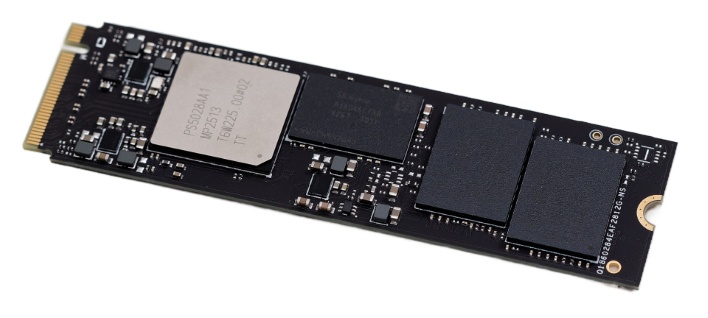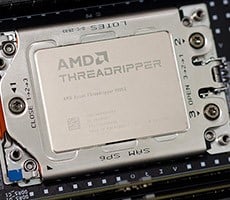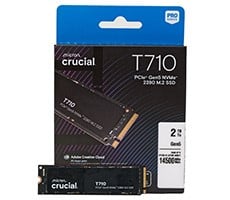Phison E28 Preview: Here’s The Future Of Low Power Speedy Gen 5 SSDs
HDTune Pro v6.1 Benchmarks
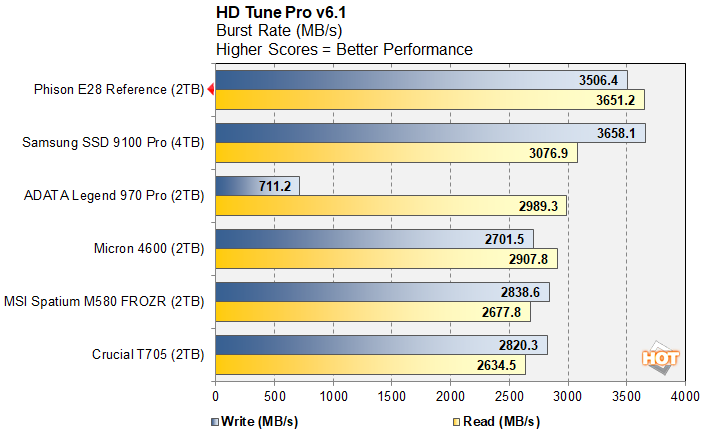
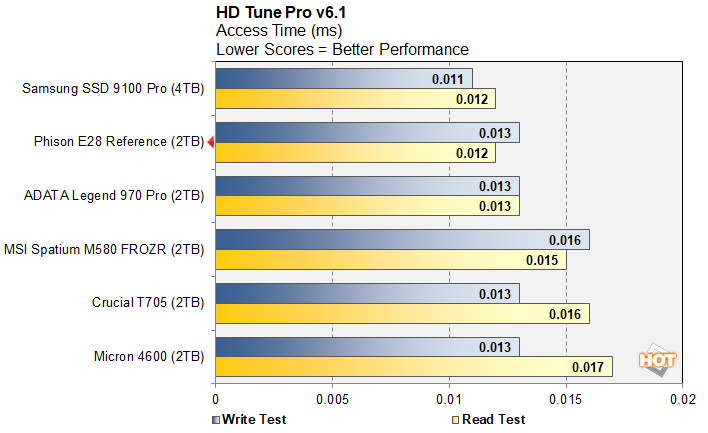
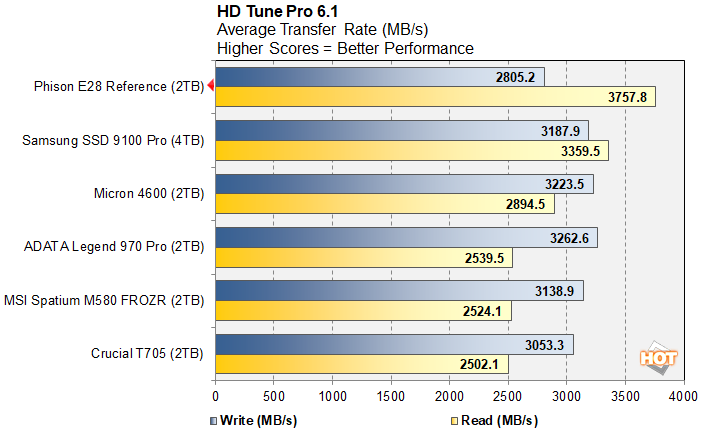
CrystalDiskMark x64 Benchmarks
CrystalDiskMark is a synthetic benchmark that tests both sequential and random small and mid-sized file transfers using incompressible data. It provides a quick look at best and worst case scenarios with regard to SSD performance, best case being larger sequential transfers and worse case being small, random transfers.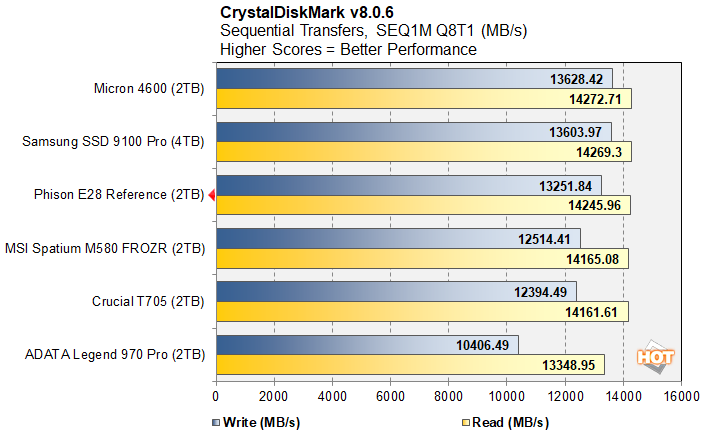
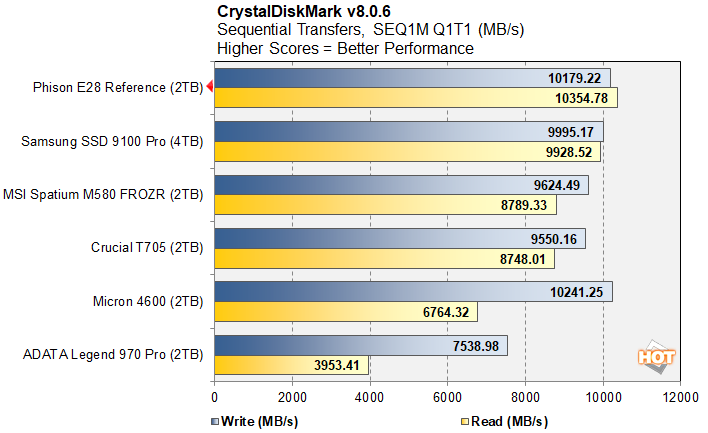
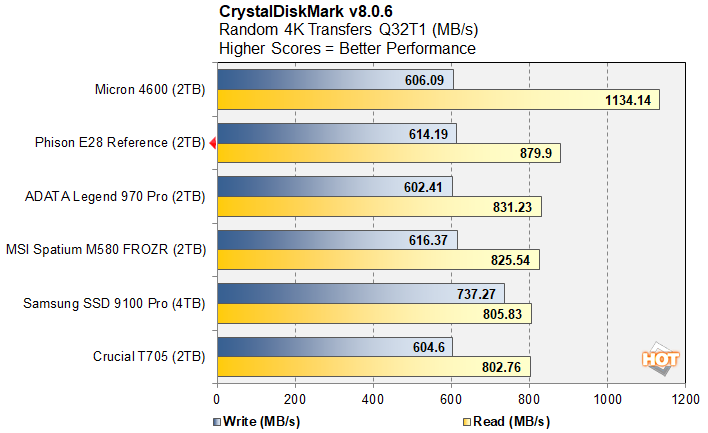
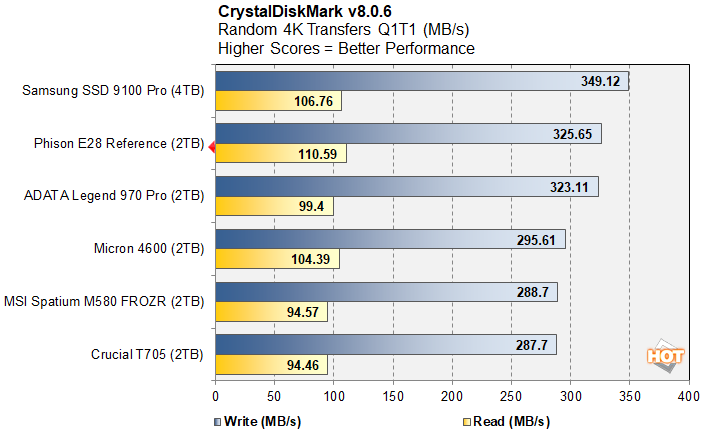
The Phison E28 SSD's performance in CrystalDiskMark's random transfer tests were also very good. In the Q32T1 test it had the second fastest reads and writes and in the important Q1T1 test it had the fastest reads overall, with the second fastest writes.
Final Fantasy XIV: Dawntrail Game Level Load Times
We also tested game level load times using the Final Fantasy XIV: Dawntrail benchmark. This tool loads an array of different game levels during its graphics benchmark and outputs the average result when complete.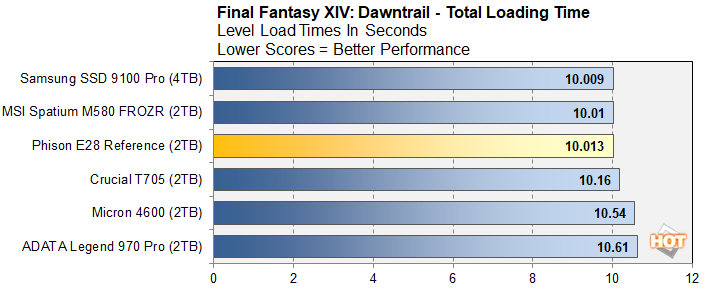
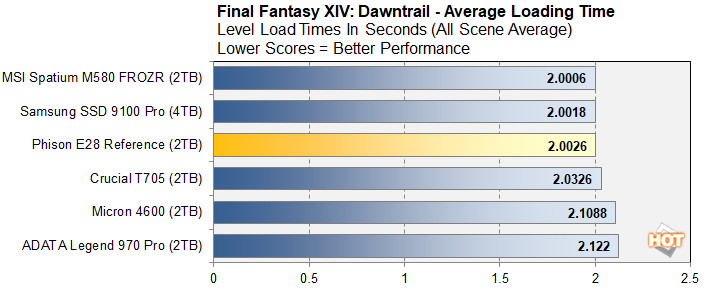
Level load times in Final Fantasy XIV: Dawntrail were excellent on the Phison E28 SSD. In this test, the E28 technically lands in the middle of the pack, but for an early engineering sample to be within a fraction of the a second of some of the fastest Gen 5 drives currently available is a strong result.
UL's 3DMark Gaming Storage Benchmark
UL recently added a gaming-centric storage benchmark to 3DMark that leverages trace-based tests of actual PC games and gaming-related activities (such as streaming with OBS) to measure real-world gaming performance in a variety of scenarios. The tests include things like loading Battlefield V, Call of Duty: Black Ops 4, and Overwatch from the initial launch to the main menu, recording a 1080p gameplay video at 60 FPS with OBS while playing Overwatch, installing The Outer Worlds and saving game progress. And finally, copying the Steam folder for Counter-Strike: Global Offensive from one drive to another.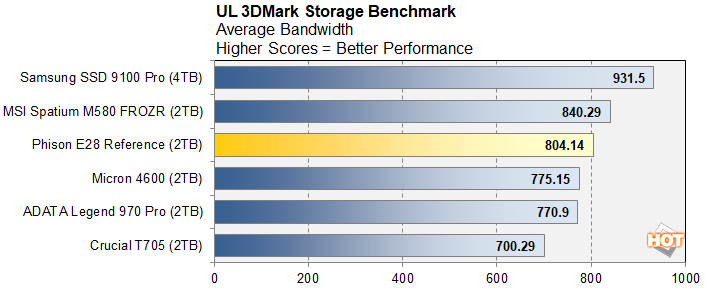
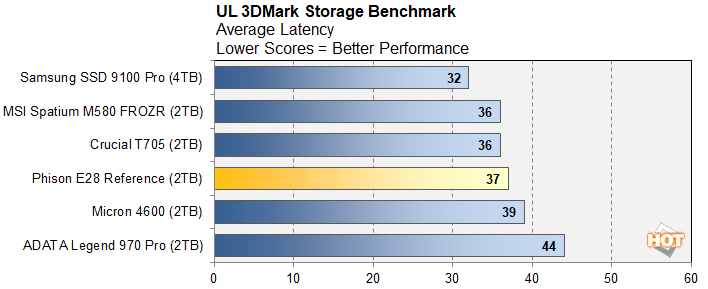
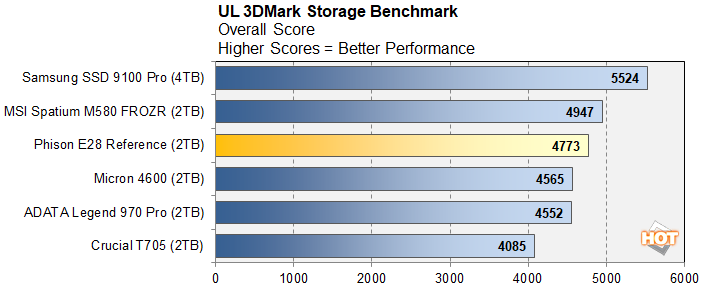
The Phison E28 SSD also landed in the middle of the pack with 3DMark's Storage Benchmark. The Samsung SSD 9100 Pro took the pole position, followed by the MSI M580, which was the fastest E26-based drive we've tested.
UL's PCMark 10 Quick System Drive Storage Test
We like PCMark 10's new quick storage benchmark module for its real-world application measurement approach to testing. PCMark offers a trace-based measurement of system response times and bandwidth under various scripted workloads of traditional client / desktop system use cases.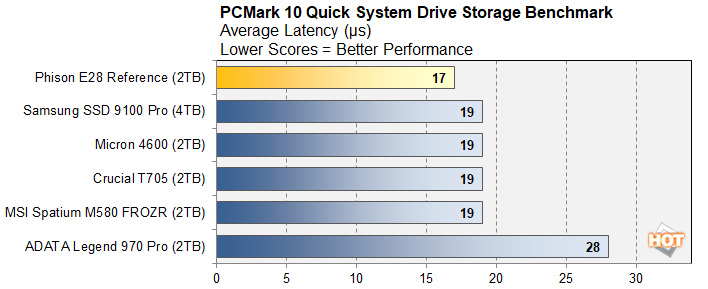
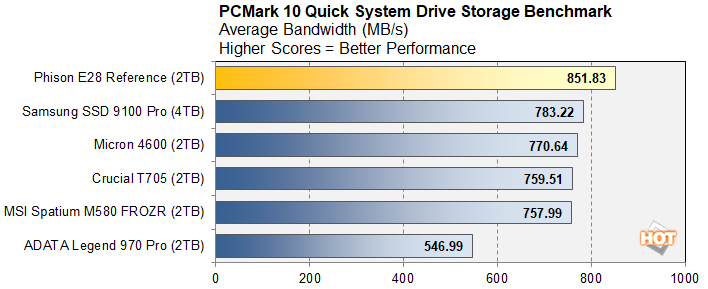
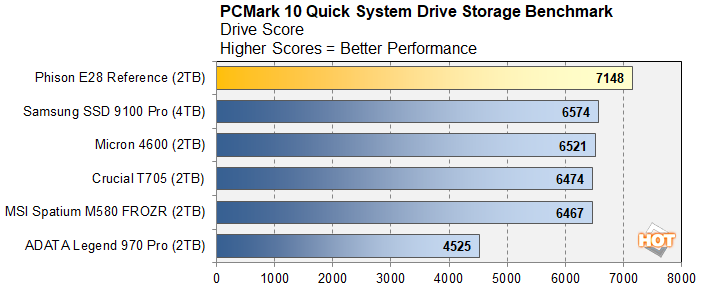
In PCMark's trace-based tests, the Phison E28 SSD performed exceptionally well. Even at this relatively early stage, the Phison E28 SSD offered the lowest latency and highest bandwidth, which put it squarely in the lead overall.
Phison E28 SSD Preview: Closing Thoughts
We won’t draw any final conclusions on the Phison E28, because we’ve only tested an early engineering sample here, with beta firmware. This is the reference drive Phison’s partners will use to design their own products, and by the time retail drives are ready (which should be in a couple of months), further firmware refinements and optimization will likely push performance a bit higher.
That said, this benchmark preview shows Phison is in a strong position and the E28 will likely grace a wide array of second-gen PCIe Gen 5 SSDs moving forward. We suspect just about every major player that built and sold E26-based drives will be on board with the E28 as well.
The fact that Phison was able to slash power so significantly with the E28 also means we’ll finally start seeing mobile workstations and enthusiast gaming notebooks with high-performance PCIe Gen 5 storage as well. It’ll be some time before things completely shake out, but the Phison E28 is already looking strong and will likely be another hit in the SSD market, advancing PCIe Gen 5 storage for a wider range of consumer and commercial applications.

